Written in Kyiv – July 7, 2024
On May 20, I threw my cap high up in the air alongside more than 1,675 new alumni of Yale College. The head of my residential college then granted me a summa cum laude degree in Economics to the fanfares of Afro-American Symphony No. 1.
Seventy-two hours later, I shut the doors of my Uber cab and stepped onto Independence Square on Khreshchatyk Street. I stood alone in the empty center of Kyiv. The sun was rising over the display of thousands of flags put out for those who had laid down their lives for Ukraine. I returned to my war-torn homeland.
I left Ukraine for education in the U.S. in 2020. Coming from a regular household in a Western Ukrainian mountain village, I could have never imagined going abroad for studies, let alone to the U.S., let alone to Yale. The Ivy League education opened the entire world to me: every career path, be it consulting or finance, and every opportunity, be it in New York or Dubai, seemed within my hand’s reach.
But I came back home – a war-ridden home.
I’m starting this newsletter to tell you more about war-time Ukraine from a quasi-American perspective of mine as I return from education in the US and reintegrate into my home country.
This newsletter carries the name of the most beautiful mountain flower – Edelweiss. It grows in the Alps and the Carpathian mountains, where I grew up. This natural masterpiece symbolizes commitment and sacrifice. The flower only appears high up in the mountains between steep, unconquerable rocks. Hundreds of alpinists died searching for an edelweiss. Ukraine’s 10th Mountain Assault Brigade, which is based in my hometown of Kolomyia, carries the nickname “Edelweiss” and has valiantly fought Russia since the war began in 2014. I dedicate this newsletter to them.
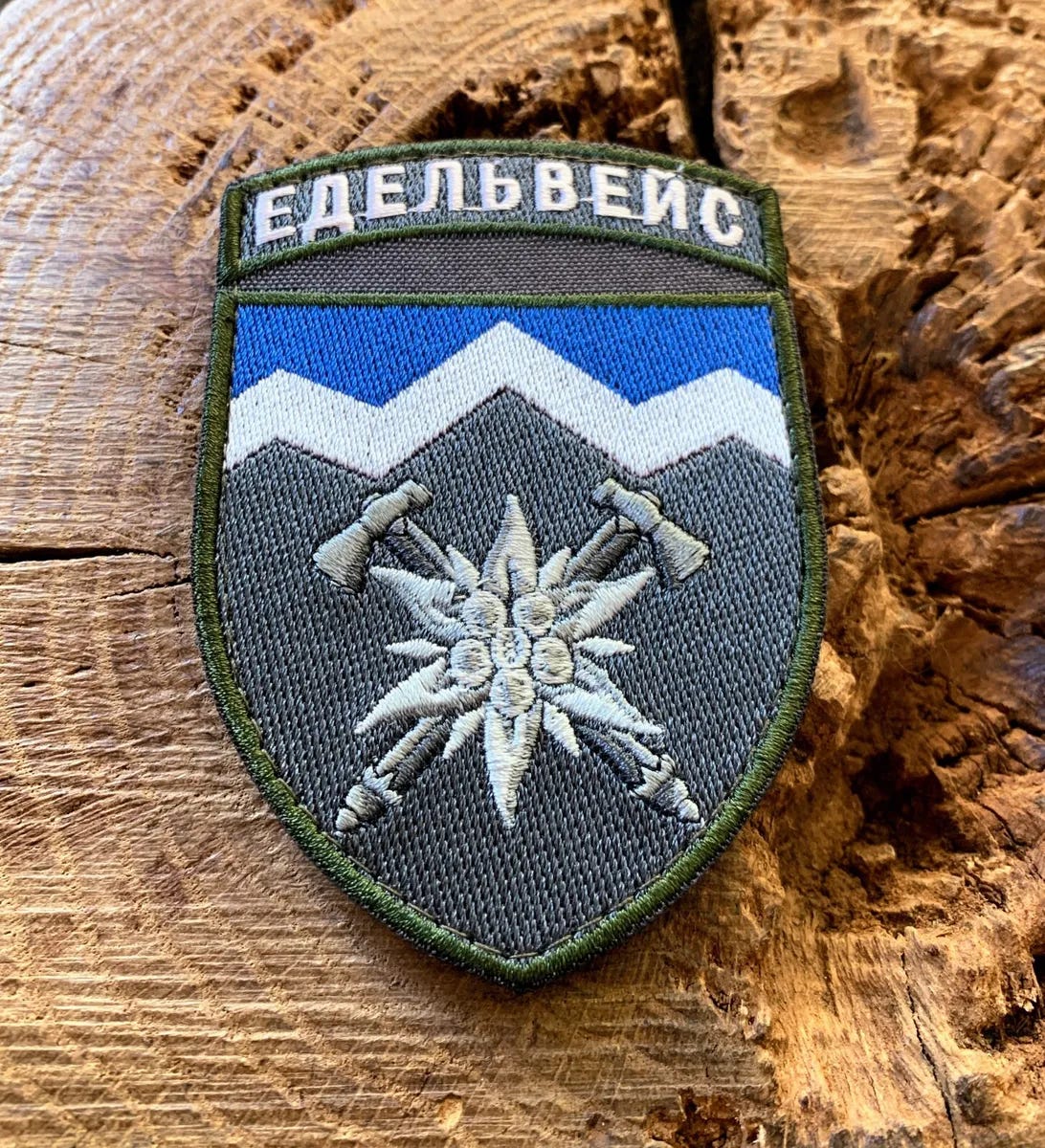
A quick update on what I’m up to: I now live in Kyiv. My government job at the Ukrainian defense sector started immediately after coming back home. I work directly with a Deputy Minister who coordinates all joint defense R&D and production projects with our Western friends. Over the last month, I also joined an officer training program in the Artillery Corps, grew my beard, and went once to the frontlines.
This newsletter, however, will focus on my decision to come back – how I arrived at it and what my impression of it has been so far.
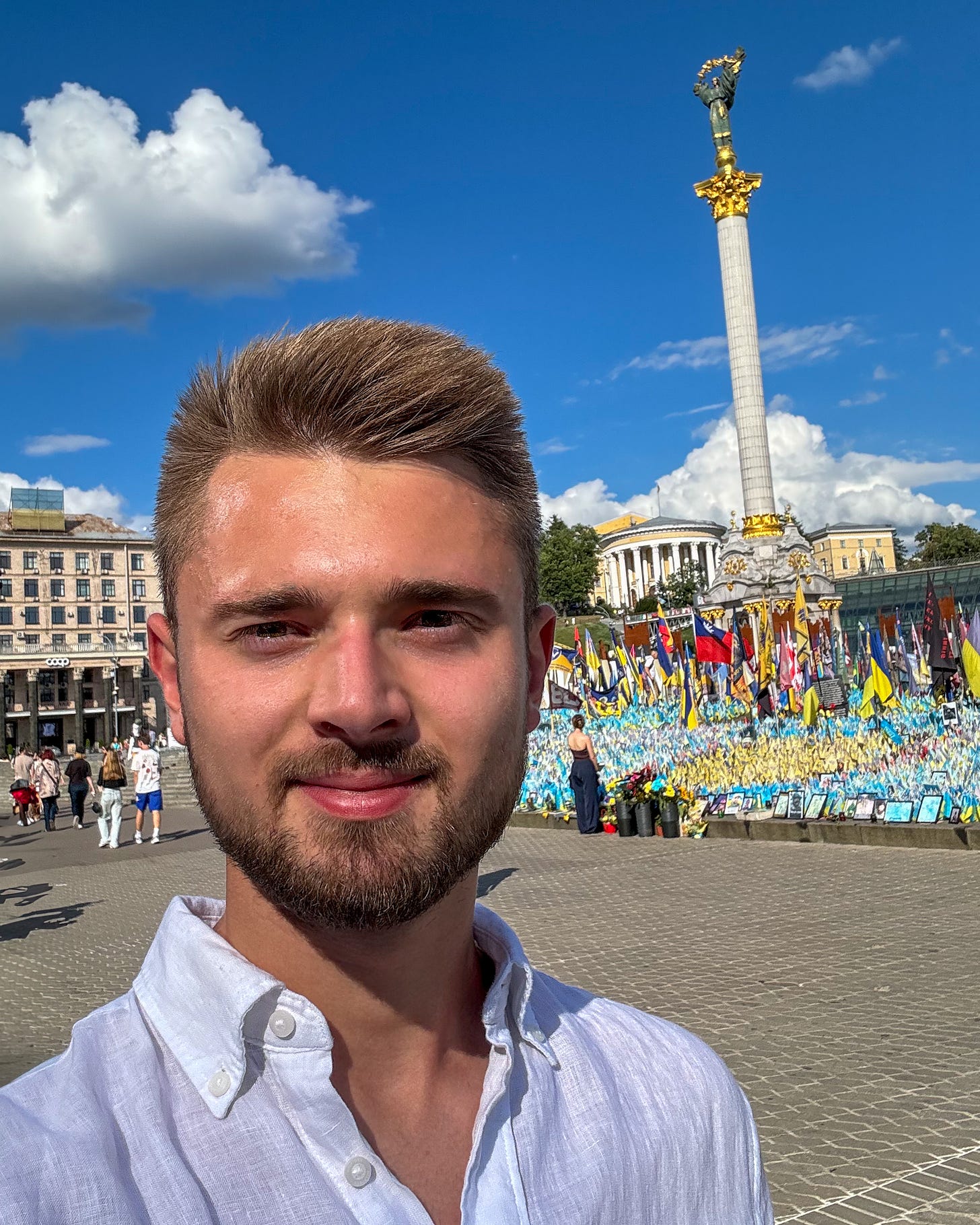
How have I arrived at my decision to return home?
I viewed my choice as not between various jobs in Ukraine and the US, and not between locations, or even careers. I was choosing between life stories. My graduation was the time to make this hefty choice because I didn’t believe I could build a Ukrainian life story if I had not returned to my home country when she needed me the most.
Alternative life stories were available to me. Timothy Snyder’s The Red Prince gave me the framework for thinking about these alternatives. The book tells the story of Prince Wilhem, a Habsburg Archduke, who could have lived any of the national lives he wanted – as a Parisian cosmopolitan, Italian admiral, Austrian royalty, German nationalist, or Polish ruler. But he made a conscious choice to become a Ukrainian, led his people through two world wars, and died as a Ukrainian in a Soviet prison in Kyiv.
Not an Austrian archduke myself, a Western Ukrainian peasant instead, I only had so many national lives available to me. One was to become an American, starting a job in a government-adjacent corporate firm with the eventuality of becoming an American citizen and working on defense in the US government. Another one was the materialistic cosmopolitan life – a citizen of the world traveling from Tokyo to New York to Dubai on a lucrative corporate job. Or a Ukrainian life with a permanent war.
It was easy to make this choice, easier than I had thought it would be. I consider myself a Ukrainian by nationality, hence I should build a Ukrainian life story. I feel that the current Russo-Ukrainian War is my war. I have an obligation to contribute to Ukraine’s victory, at least on a micro level, because I consider myself a Ukrainian on a deeply personal and emotional level.
This was a choice between an idea and material comfort. Meaningless safety and comfort in the US were on one side, and meaningful danger and discomfort in Ukraine were on the other side.
For some, remaining in the US would have meaning. For me, as a Ukrainian, it did not. Ukraine’s future is decided in Ukraine. Some Ukrainians can indeed best help their home country from abroad, such as our Ambassadors. In my case, any contribution I could’ve made in the US would pale in comparison to what I can do for Ukraine in Ukraine.
What are my impressions upon returning?
My decision to come back to Ukraine was correct.
Every action here feels meaningful - conversing with friends, paying taxes, and even completing the most mundane things at work. The air feels permeated with the heftiness of the historical moment. Of course, this is an initial high that will give way to more skeptical and even hypocritical attitudes. Yet, one does need to wear pink glasses at the beginning to power through the hardest moments of initial cultural shocks and adaptations. And maybe one should never take off these glasses during wartime, acting pragmatically but powering themselves with idealistic dreams.
How have other Ukrainians perceived my decision?
Everyone is, of course, happy that a Ukrainian with Western education came back. As millions have left, there is a shortage of high-skilled cadres in every single sector at every single level.
People are, however, bewildered at my return. Some are bewildered at the very decision because so many try to leave Ukraine and escape from their civic obligations.
Some are bewildered at the timing of my return. They say that they would’ve understood my decision in 2022 when everyone was running on a patriotic high and thought the war would be short and victorious. But now, when Ukraine is not winning this war and may lose its sovereign statehood altogether, some people view my decision as a return to a sinking ship. Although they do admire my decision, some find it fanatical.
There’s some truth to this opinion – more truth than I would like to admit. Yet, I think it's exactly in the moments of the greatest peril when the true loyalties are shown.
And on this bittersweet note I shall end. Sorry for this. This is how my country feels right now. Ukraine is happy that it had retained its independence and freedoms, but there still is a dark force menacing us from our north, east, and south. And it’s only growing stronger.
May you have peaceful skies.
From Kyiv with Love,
Oleksii




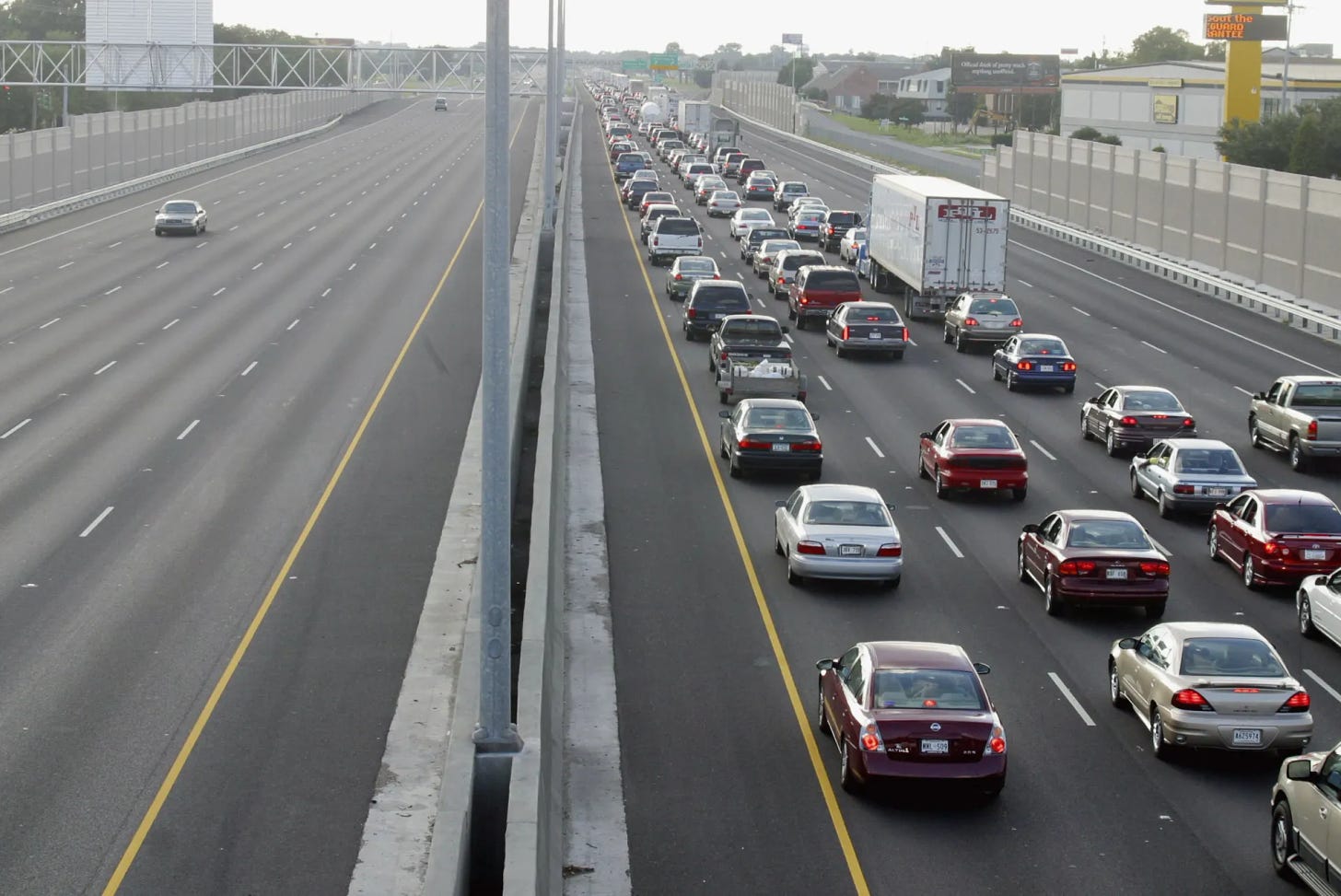
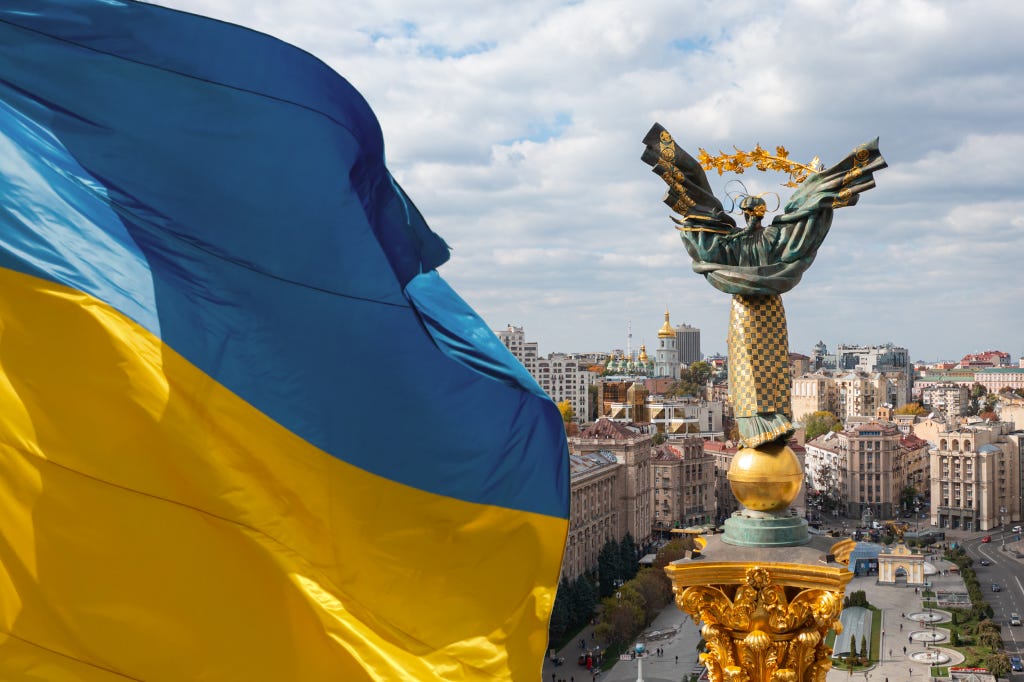
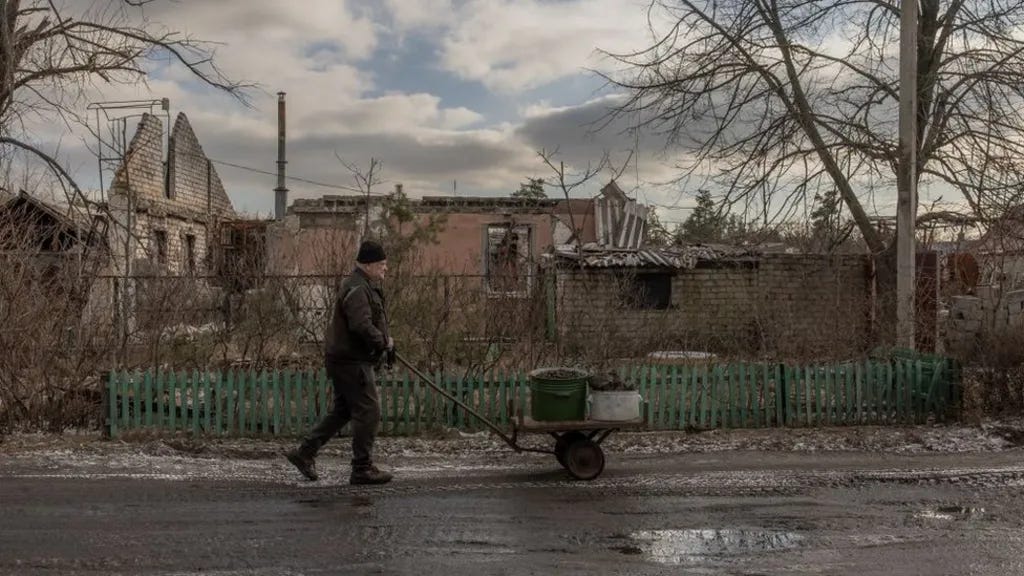
Hegel writes in his Philosophie des Rechts, that it is a mistake to consider patriotism only as “a willingness to perform extraordinary sacrifices and actions”. Professor Smith at Yale writes that patriotism is not something expressed only in times of national crisis; it is required under “the normal conditions and circumstances of life”. It is a quiet virtue, which does not demand dramatic acts of heroic self-sacrifice, but rather a willingness to be “tried and tested in all circumstances of ordinary life.”
You are committed to the most extraordinary demands of patriotism, but also live the quiet virtue of patriotism, in ordinary life, through the daily performance of civic duties for your countrymen. The national life you chose is the one you will not regret. You embody the values of West Point - Duty, Honor, Country: обов'язок, честь, країна
Most graduates don't know if anything they do is meaningful in the face of eternity and wonder with existential dread if they will ever do something worthwhile to humanity, and pleasing to God.
You will never have to.
With great respect and admiration,
William G.M. Joo
https://www.americanrhetoric.com/speeches/douglasmacarthurthayeraward.html
Beautiful piece Oleksii. I look forward to reading more.